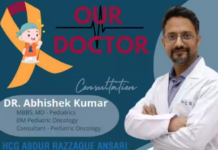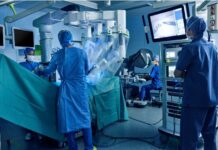- Supported by the National Health & Medical Research Council (NMHRC) of Australia, the study was coordinated by Christian Medical College, Ludhiana and the quality of the implementation monitored by the Indian Institute of Public Health, Hyderabad with George Institute for Global Health providing technical support for implementing the study.
New Delhi, November 05, 2016: The first of its kind Stroke Rehabilitation in India study – FAmily Led RehabiliTaTion aftEr Stroke in INDia – The ATTEND Trial was released today, highlighting that it is imperative to invest in stroke units and multidisciplinary rehabilitation centers to improve outcome after stroke. It is estimated that 1.6 million people have a stroke in India every year with early casefatality rates ranging from 27% to 41%. This equates to 1.5 million people having a stroke each year, and a further 500,000 people, each year, living with stroke disability. Although there is a paucity of data on the long-term consequences of stroke on families in India, anecdotal evidence indicates a significant burden, particularly in rural areas. Stroke is the third commonest cause of death in the adult population.
Present on the occasion were Dr Soumya Swaminathan, Director General ICMR, Dr Richard Lindley, Professor, The George Institute for Global Health, Australia, Prof Srinath Reddy, President, Public Health Foundation of India, Dr Jayaraj Pandian, Professor and HoD, CMC Ludhiana, Dr Damodar Bachani, Deputy Commissioner MoHFW and Prof GVS Murthy, Director Indian Institute of Public Health, Hyderabad.
In his address Prof GVS Murthy, Director Indian Institute of Public Health, Hyderabad and the Co-Investigator of the ATTEND Trail said, “ There is an urgent need to establish well quipped and staffed accessible and affordable stoke care units supplemented with family supported care.”
The ATTEND Trial is a multicentre, randomised, blinded outcome assessor,controlled trial, which looked at whether a family-led caregiver-delivered home-based rehabilitation intervention versus usual care is an effective, affordable early supported discharge strategy for those with disabling stroke in India. The Trial was conducted at 14 centres across India. This is one of the largest stroke trials ever undertaken. 1250 stroke patients were followed up over six months. The study was supported by the National Health & Medical Research Council (NMHRC) of Australia. The study was coordinated by Christian Medical College, Ludhiana and the quality of the implementation monitored by the Indian Institute of Public Health, Hyderabad. The George Institute for Global Health provided the technical support for implementing the study.
The findings from the study categorically support the establishment of high quality comprehensive stoke units across India increasing to about a 100 from the present 30 such centres. Results of the study and policy implications were presented at a workshop in Delhi on 3rd November 2016. The workshop was organized by the Indian Institute of Public Health, Hyderabad in collaboration with the George Institute India and the Christian Medical College, Ludhiana.
- 1250 patients with mild to moderate disability from 14 hospital sites across India over two year period.
- The intervention was delivered as planned and as per the study protocol.
a) Average of 3 hours hospital training and 3 hours of total home visits were provided to intervention patients.
b) Carers and patients reported 18 hours of training in the first month after discharge.
The intervention was completely safe.
Recommendations for Stroke Rehabilitation in India:
These results suggest that it is imperative to invest in stroke units and multidisciplinary rehabilitation centers to improve outcome after stroke.
Government should include these stroke units, multidisciplinary rehabilitation centres as part of Prime Ministers vision of 100 smart cities.
Unmet needs with about half of stroke survivors reported problems with mobility, depression, pain at six months. Emphasis should be on making hospitals, buildings, public transport more accessible for the people with disabilities.
There is need to strengthen and invest more in primary prevention campaign given the high prevalence of various risk at young age of patients in ATTEND study. (i.e. 3/4th had hypertension and 40% had diabetes).
There is also a need to focus on generating employment for survivors with disabilities as the huge number of them belongs to economically productive age group and were the main income earners of the family.
Corporate Comm India(CCI Newswire)




















